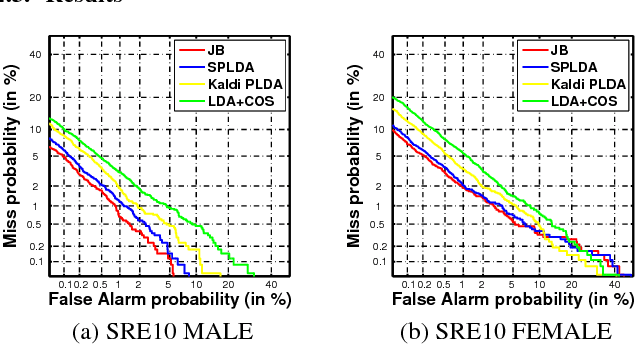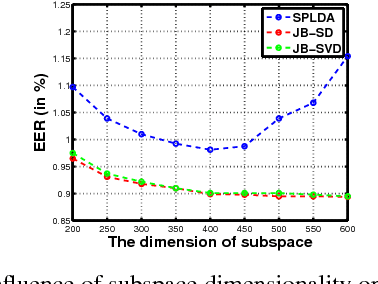Joint Bayesian Gaussian discriminant analysis for speaker verification
Paper and Code
Jan 19, 2017



State-of-the-art i-vector based speaker verification relies on variants of Probabilistic Linear Discriminant Analysis (PLDA) for discriminant analysis. We are mainly motivated by the recent work of the joint Bayesian (JB) method, which is originally proposed for discriminant analysis in face verification. We apply JB to speaker verification and make three contributions beyond the original JB. 1) In contrast to the EM iterations with approximated statistics in the original JB, the EM iterations with exact statistics are employed and give better performance. 2) We propose to do simultaneous diagonalization (SD) of the within-class and between-class covariance matrices to achieve efficient testing, which has broader application scope than the SVD-based efficient testing method in the original JB. 3) We scrutinize similarities and differences between various Gaussian PLDAs and JB, complementing the previous analysis of comparing JB only with Prince-Elder PLDA. Extensive experiments are conducted on NIST SRE10 core condition 5, empirically validating the superiority of JB with faster convergence rate and 9-13% EER reduction compared with state-of-the-art PLDA.
 Add to Chrome
Add to Chrome Add to Firefox
Add to Firefox Add to Edge
Add to Edge